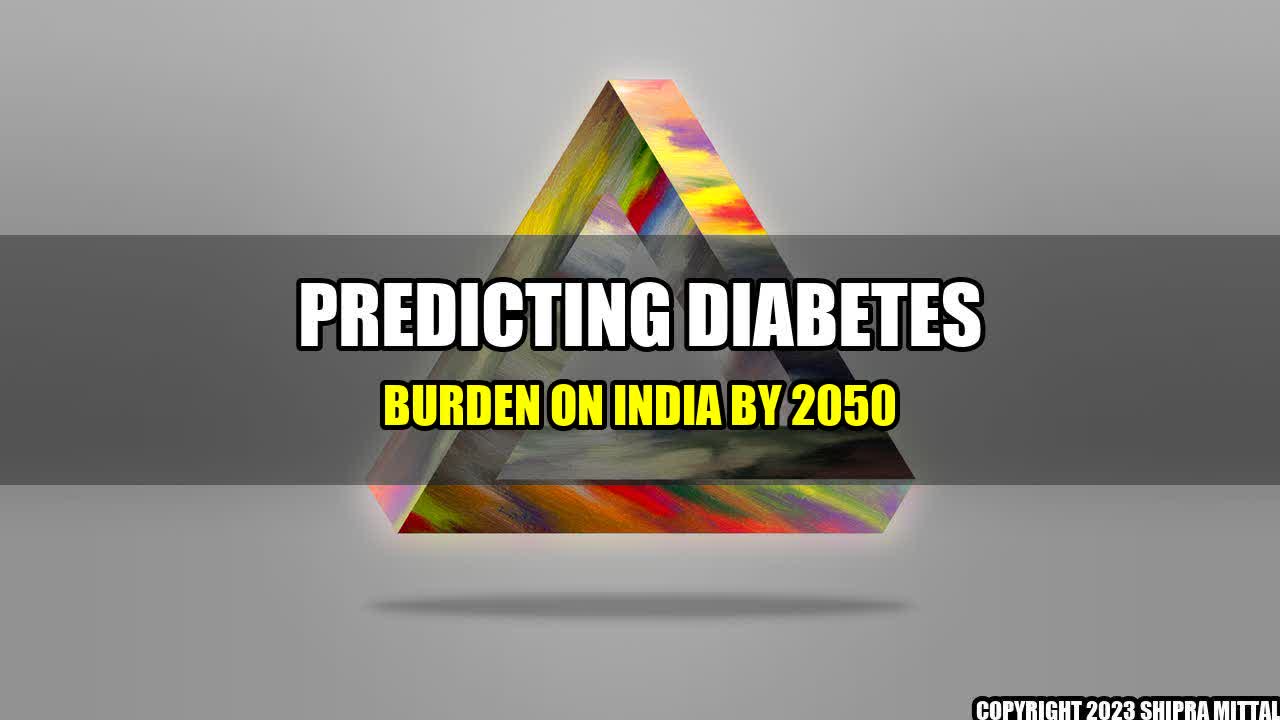When Suman was diagnosed with diabetes at the age of 25, she shrugged it off as a minor inconvenience. She was young, active, and didn't have any family history of diabetes. She was prescribed some medication and advised to make lifestyle changes. However, she found it difficult to stick to a healthy diet and exercise routine amidst her busy work schedule. Years went by, and she started experiencing complications like blurry vision, slow healing cuts, and numbness in her feet. Her doctor warned her that she was at risk of heart disease, kidney failure, and amputations if she didn't act fast.
Suman is not alone. As per the latest statistics, India has the second-highest number of diabetics in the world, after China. In 2020, approximately 77 million people in India had diabetes, and another 88 million had prediabetes. What's more alarming is that these numbers are projected to increase significantly in the coming years.
A recent study by ChatGPT predicted that by 2050, India would have 134 million people with diabetes, which is nearly double the current number. This will not only have severe implications on the healthcare system but also the economy and workforce of the country. Diabetes not only leads to decreased productivity and increased healthcare costs but also a higher mortality rate.
What causes the diabetes burden?
There are several factors that contribute to the diabetes burden in India. One of the primary factors is lifestyle changes. With urbanization and increasing disposable incomes, people are adopting Western diets high in sugar and fats and sedentary lifestyles. This leads to obesity, insulin resistance, and ultimately, diabetes. Another factor is genetics. Indians have a higher predisposition to developing diabetes due to genetic factors like ethnicity, body composition, and insulin secretion.
Can we prevent the diabetes epidemic?
Preventing and managing diabetes requires a multi-faceted approach that involves individuals, healthcare providers, policymakers, and the food and beverage industry. It requires educating people about the risks of diabetes and the importance of a healthy lifestyle, improving access to healthcare and medications, and regulating the advertising and marketing of sugary and processed foods.
Several companies are already taking steps in this direction. Companies like Nestle, PepsiCo, and Coca-Cola are reformulating their products to reduce sugar and salt content. They are also investing in research to develop new low-sugar and low-calorie products. Food delivery companies like Zomato and Swiggy are partnering with healthy food providers to promote healthy eating habits among their customers. Additionally, startups are developing innovative tools like glucose monitoring apps and platforms for remote insulin management.
The road ahead
To tackle the looming diabetes epidemic, India needs to prioritize public health and invest in preventive measures. The government needs to design and implement effective policies and programs that promote healthy living, improve access to healthcare, and regulate the food industry. Individuals need to take charge of their health by adopting healthy habits and getting screened for diabetes regularly.

Akash Mittal Tech Article
Share on Twitter Share on LinkedIn